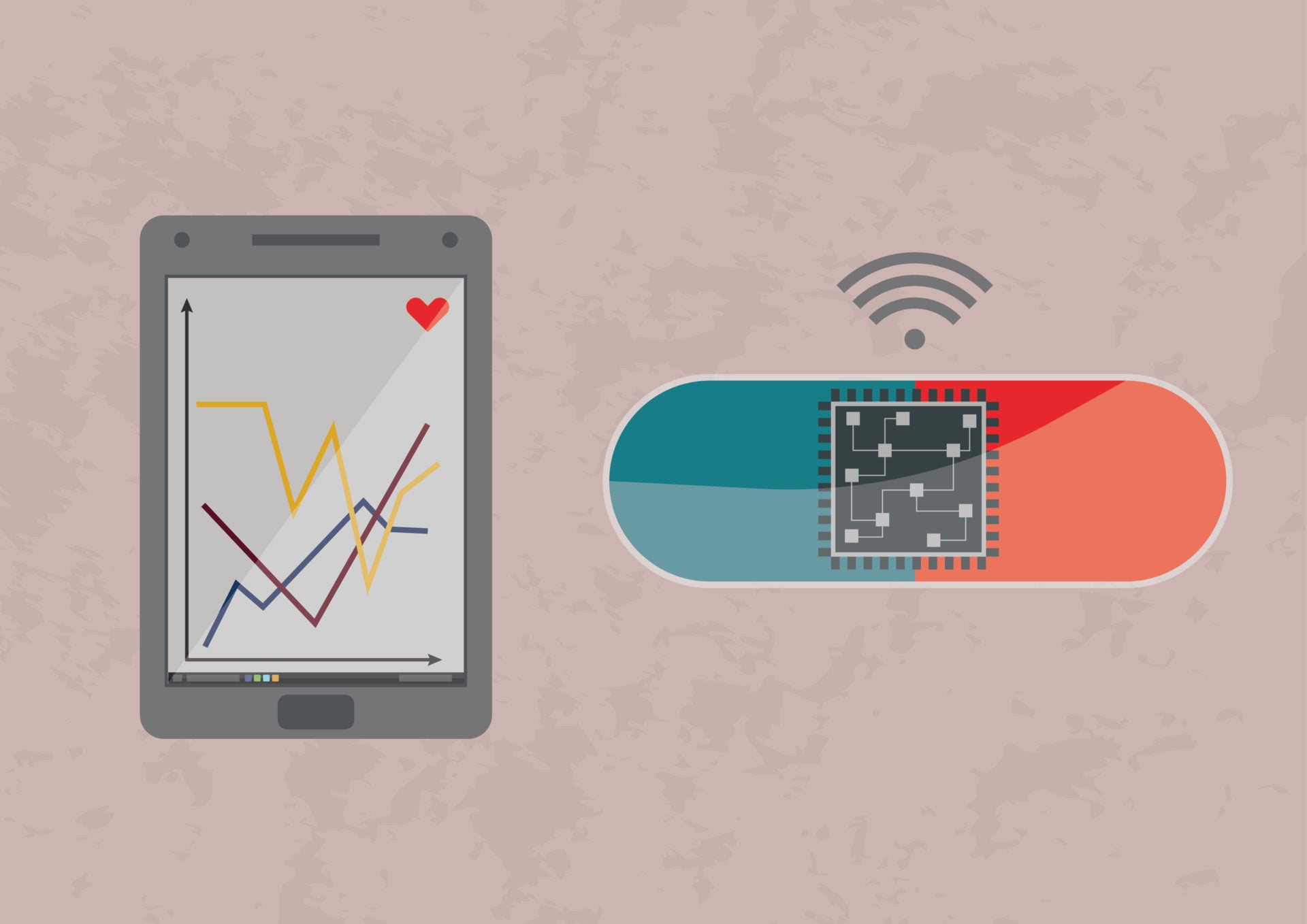
Ingestible trackers could soon spell the end of invasive procedures such as endoscopes thanks to a ping-pong-sized smart pill that can be used to track ulcers, cancers and other gastrointestinal conditions.
This is according to researchers at the Massachusetts Institute of Technology, who are developing ingestible trackers whose design is inspired by nature.
Described as a “jelly-like pill”, the tracker is made from a mixture of polymers and water, meaning it is not affected by stomach acid, and is longer-lasting than current ingestible sensors, which can only remain in the stomach for a few days.
Ingestible trackers inspired by nature
Made from sodium polyacrylate, a highly absorbent material, encapsulated in a hydrogel layer, the design for the new inflatable pill is inspired by the defence mechanisms of the pufferfish.
This due to a unique feature. Once it reaches the stomach, the pill expands to the size of a soft ping-pong ball, to ensure it is not small enough pass out of the stomach, and then continually tracks the stomach’s temperature for 30 days via a sensor.
How well do you really know your competitors?
Access the most comprehensive Company Profiles on the market, powered by GlobalData. Save hours of research. Gain competitive edge.

Thank you!
Your download email will arrive shortly
Not ready to buy yet? Download a free sample
We are confident about the unique quality of our Company Profiles. However, we want you to make the most beneficial decision for your business, so we offer a free sample that you can download by submitting the below form
By GlobalDataWhen the pill has to be removed, the patient drinks a calcium solution that causes the pill to shrink down to its original size and pass out of the stomach.
The pills have been tested on pigs, which have stomachs and gastrointestinal tracts very similar to humans, and researchers successfully tracked their daily activity patterns for up to 30 days.
Researchers hope that in the future the technology could be used to monitor vital signs, pH levels or signs of certain bacteria or viruses. Tiny cameras may also be embedded into the pills to image the progress of tumours or ulcers over the course of several weeks.
It could also be used as a safer and more comfortable alternative to the gastric balloon diet, in which a balloon is threaded through a patient’s oesophagus and into the stomach, using an endoscope.
The research was supported, in part, by the National Science Foundation, National Institutes of Health and the Bill and Melinda Gates Foundation.







